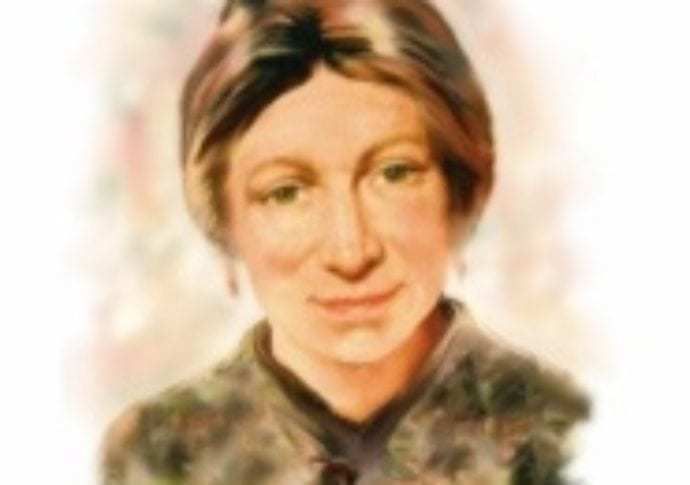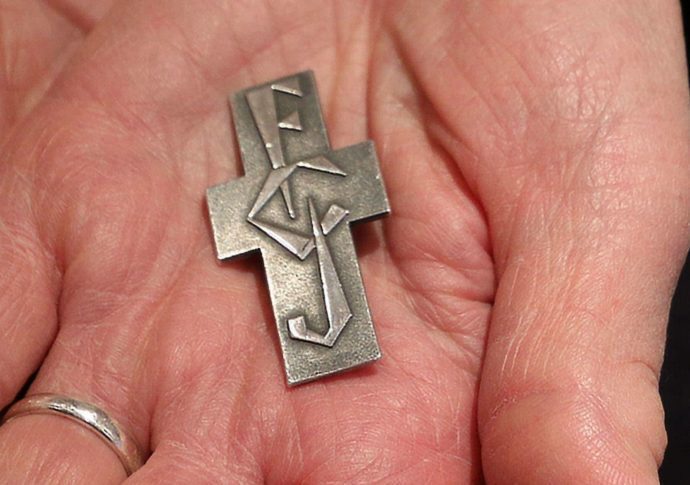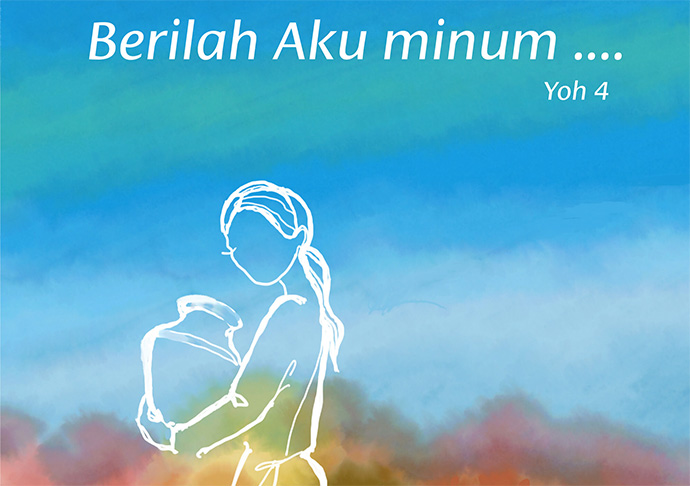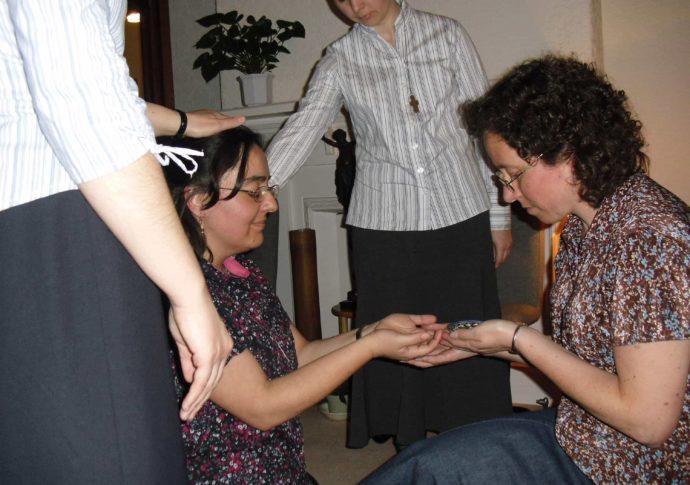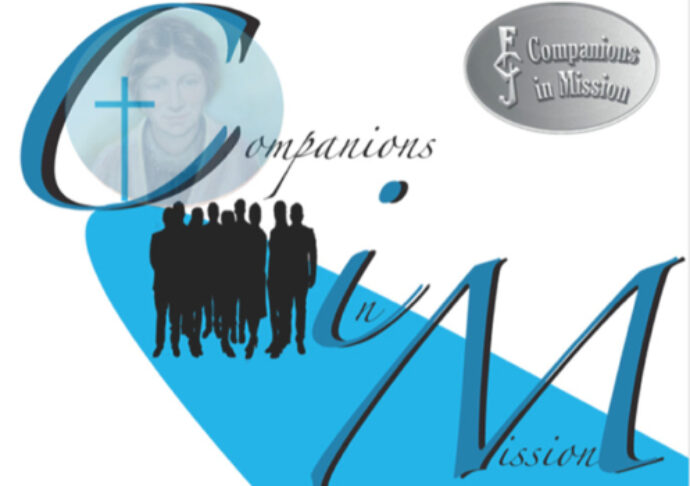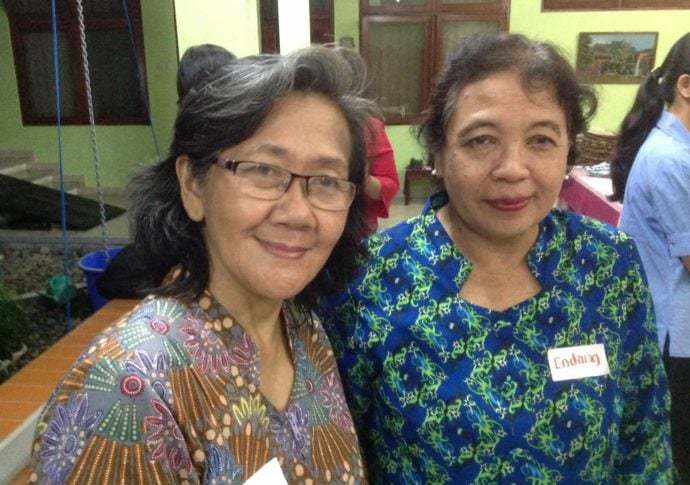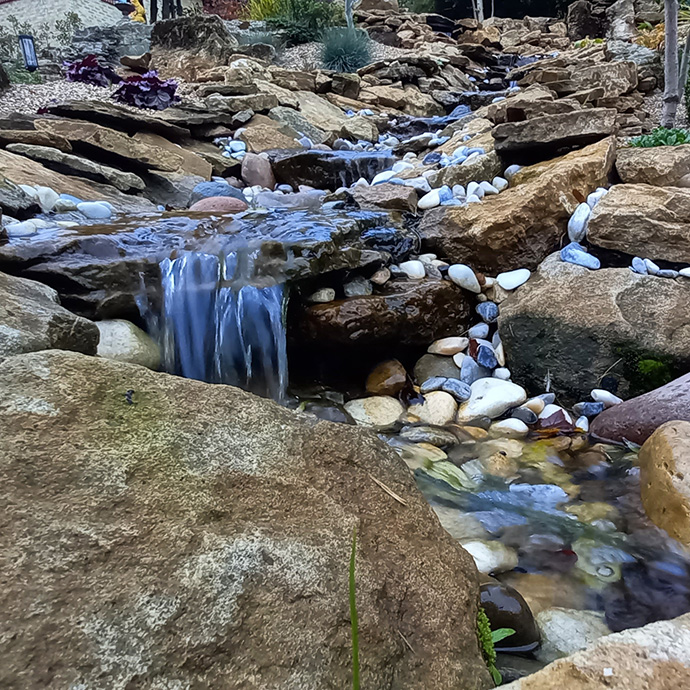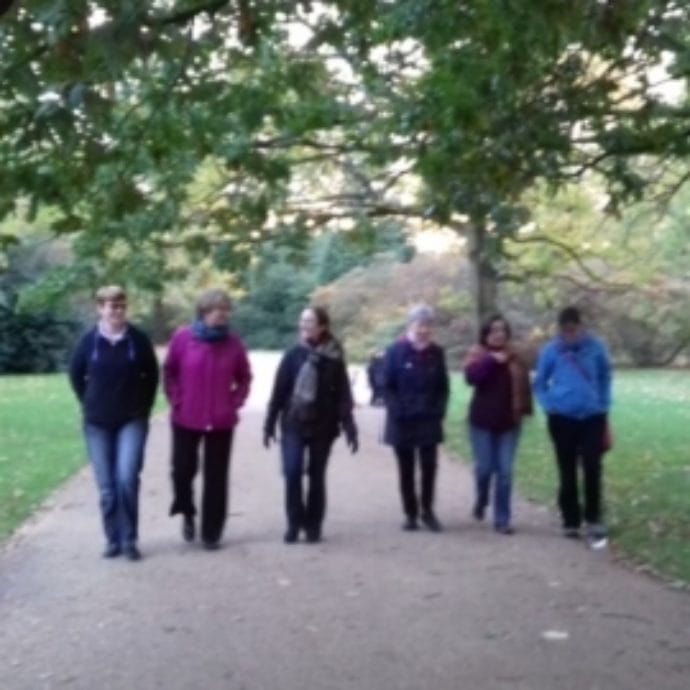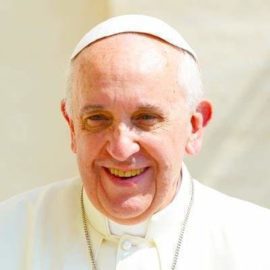Capitulars at the FCJ General Chapter in Godalming have spend the last week in a silent retreat led by reflections from Fr Brendan Callaghan SJ. In one of the reflections Brendan explored the words I thirst, so important in the experiences of God of FCJ foundress Marie Madeleine d’Houët and hence in those of FCJ Sisters and Companions in Mission. We reproduce the reflection here with permission.
On Friday I shared with you some of my encounter with Julian of Norwich, and it was only afterwards that it struck me that Marie Madeleine also encountered God’s love and grace in her exceptional ways in being present to Jesus on the Cross. … “Doing my homework” in preparation for spending this retreat time with you, I was struck by how powerful and central for Marie Madeleine was the experience she was given while waiting for Mass on the Feast of the Sacred Heart in 1817:
Suddenly I heard a voice coming from the crucifix over the altar, saying to me, ‘I thirst.’ Deeply moved by these words, I bowed down and offered myself to God with all my heart, for all that he might ask of me.
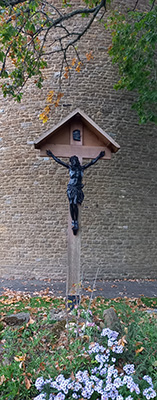
As Mary Campion McCarren fcJ, writing back in 1981, recounts what developed:”Jesus, whose companion she was to be, was revealing to her his thirst for her love. And her love was to be shown in deeds as well as in words; she was to be a contemplative in action … She was to help bring Jesus to those for whose love he thirsted.”
So, in the Formula which opens the Constitutions, we read:
The Father calls us
to follow his Son in faithfulness,
to stand at the foot of the cross
with Mary and the Holy women,
there, as Faithful Companions of Jesus
to be one with him in his thirst
for the coming of the kingdom.
In the collection of Breda O’Farrell’s writings [Reflections on the Spirituality and Identity of the Faithful Companions of Jesus] edited by Campion fcJ and published in 2017, there is a section of ten pages headed ‘I thirst’. You will be infinitely more familiar with these insights than I am, and I don’t intend to provide a summary of them: that would be presumptuous of me. But I would like to share with you some of what stood out for me, coming to these thoughts of Breda’s for the first time, and to follow that with some complementary thoughts on “I thirst”, from Pope Leo’s catechesis at a General Audience at the start of September, and short extracts from an address given to men approaching ordination sometime in the 1970’s by the Jesuit Michael Buckley. Along with my own reflections, I’ll use a lot of their own words.
In the material I have selected, Breda starts by making a point which, once I had heard it was obvious, but which I needed to hear:
Founders and foundresses have a true instinct of the Spirit for the meaning of biblical expressions … The message of the Spirit speaking within them, speaking to them, obviously comes though the language of their times, but the meaning itself is not time bound. … When God has an emphasis which he wants to bring to the world, he speaks to a founder or foundress very, very powerfully and the message which he communicates is precious.
Breda then points to what develops for Marie Madeleine and for those who in a particular way hear and respond to the message communicated to her and through her.
We are aware of the historical situation in which our foundress experienced the ‘I thirst’; we are aware too of the biblical situation in which Jesus experienced ‘I thirst’ … [Jesus] says: ‘I will give water… free, to anybody who is thirsty. There is the condition: we must be thirsty.
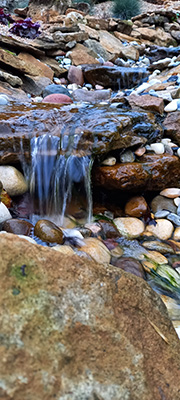
It seems to me, coming to these experiences and reflections for the first time, that this recognition of our own thirst rescues us from any over-simple reading of the experiences of Marie Madeleine: without this, we could be left with no more than a pious practice, but with this, we are invited and empowered to live in the astonishing reality of the thirst which is at one and the same time the thirst experienced by Jesus on the Cross, the thirst of God for us, and our thirst for God and the outpouring of the Spirit.
The gift of thirst is ours, that is why we so often in tension. The Word of God comes to disturb us, not to leave us complacent … The Word of God is speaking and there is a tension within us caused by the Word of God, still calling. still expressing hope, still thirsting for us. … The thirst that was bequeathed to us by our foundress is a reality; it is a thirst to receive the Spirit and to pour forth the Spirit, to give the Spirit, to set the Spirit free; to create in ourselves that thirst to receive the Spirit and that thirst to pour [the Spirit] forth. It is an identification with Christ, and it cannot be achieved without our being placed with Christ on the Cross and without our dying with him. If only we knew what it is to thirst!”
I commend to you the pages (starting on page 26) from which these excerpts are taken.
Having been alerted to the significance of “I thirst” for Marie Madeleine, my eye was drawn to the item on the Vatican website reporting Pope Leo’s Wednesday Catechesis on “I thirst” [General Audience 3 September 2025]. I think that what Leo says is complementary to the ways in which ‘thirst’ has its significant place in FCJ spirituality. Further, I think that how he invites us to reflect is relevant for all of us now – for any individual or community within the church – as our self-awareness changes from a confidence effectively rooted in the scale of our church and community institutions, in our growing numbers, and in our status, to a new recognition of our fragility and our diminishment, institutionally, numerically, and in our perceived status.
Jesus on the cross says “I thirst”. Leo tell us:
On the cross, Jesus does not appear as a victorious hero, but as a supplicant for love. …He humbly asks for what he, alone, cannot give to himself in any way. The thirst of the Crucified Lord… is above all, the expression of a profound desire: that of love, of relationship, of communion. It is the silent cry of a God who, having wished to share everything of our human condition, also lets himself be overcome by this thirst. A God who is not ashamed to beg for a sip, because in that gesture he tells us that love, in order to be true, must also learn to ask and not only to give.
Leo, it seems to me, brings together in this way the desire of God in Jesus – the desire that we all experience – that of love, of relationship, of communion, with the insight that can only challenge so much of our religious triumphalism (nowadays more implicit than explicit) but there nonetheless:
Life [says Leo] is “fulfilled” not when we are strong, but when we learn how to receive…. This is the Christian paradox: God saves not by doing, but by letting something be done to him. Not by defeating evil with force, but by accepting the weakness of love to the very end. On the cross, Jesus teaches us that … salvation is not found in autonomy, but in humbly recognizing one’s own need and in being able to express it freely.
So, just as Marie Madeleine reminds us though Breda, so Leo tells us:
Jesus’ thirst on the cross is therefore ours too. It is the cry of a wounded humanity that seeks living water. … If we have the courage to acknowledge it, we can discover that even our fragility is a bridge towards heaven. It is precisely in asking – not in possessing – that a way of freedom opens up, because we cease to pretend to be self-sufficient.
… in Christ’s thirst we can recognize all of our own thirst. And to learn that there is nothing more human, nothing more divine, than being able to say: I need. Let us not be afraid to ask, especially when it seems to us that we do not deserve. Let us not be ashamed to reach out our hand. It is right there, in that humble gesture, that salvation hides.
I don’t know if Leo had read the address by the American Jesuit Michael Buckley to a group of younger Jesuits approaching ordination. It originally appeared sometime in the 1970’s, and Michael reworked some of it (at least) in 2016 [What Do You Seek? The Questions of Jesus as Challenge and Promise (Eerdmans, 2016)]. He noted the tendency – as current now as when he first wrote – to estimate a person’s aptitude for a profession or for a career by listing his strengths. But he had something different to propose to the men originally before him, and to many women and men since:
[For] there is a different question, one proper to any form of Christian ministry: Is this person weak enough to be a servant of the gospel of Christ? What is meant by weakness? Not the experience of sin. Indeed, almost its opposite. Weakness is the experience of a peculiar liability for suffering; a profound sense of inability both to do and to protect; an inability, even after great effort, to author or to perform as we should want, to effect what we had determined; an inability to succeed with the completeness that we might have hoped for. Weakness is the openness to the humiliations and sufferings that issue in the inability to secure one’s own future, to protect ourselves from any adversity, to live with easy clarity and assurance, or to ward off shame, pain, and even interior anguish.
Weakness is the context for the epiphany of the Lord; it is the night in which he appears — not always as felt reassurance, but more often as a hidden power to continue, faithful even when one does not feel the strength, even when fidelity means simply putting one foot in front of the other.
A closing thought from the English cultural critic and thinker John Berger takes us ‘back to the beginning’, and for me brings together a good deal of what we have been thinking about, in a typically brief manner:
God is helpless. He is helpless out of love. If he had retained power he would not love us as he does. Dear God, aid us in our helplessness.
Find out more about what a General Chapter is or the preparations for our FCJ General Chapter. Follow the Chapter news on the News of our General Chapter page.





